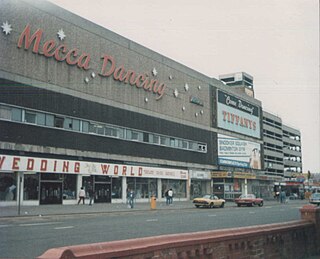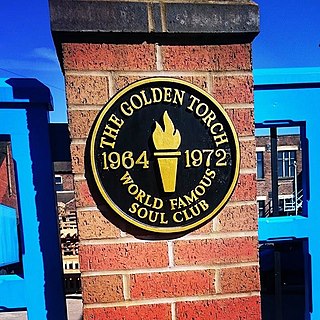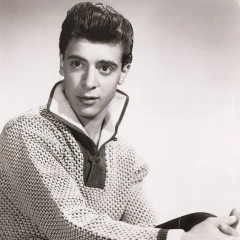
Disco is a genre of dance music and a subculture that emerged in the late 1960s from the United States' urban nightlife scene. Its sound is typified by four-on-the-floor beats, syncopated basslines, string sections, brass and horns, electric piano, synthesizers, and electric rhythm guitars.

Madchester was a musical and cultural scene that developed in the English city of Manchester in the late 1980s, closely associated with the indie dance scene. Indie-dance saw artists merging indie rock with elements of acid house, psychedelia, and 1960s pop.

Northern soul is a music and dance movement that emerged in Northern England and the Midlands in the early 1970s. It developed from the British mod scene, based on a particular style of Black American soul music with a heavy beat and fast tempo.
Rare groove is music that is very hard to source or relatively obscure. Rare groove is primarily associated with funk, R&B and jazz funk, but is also connected to subgenres including jazz rock, reggae, Latin jazz, soul, rock music, northern soul, and disco. Vinyl records that fall into this category generally have high re-sale prices. Rare groove records have been sought by not only collectors and lovers of this type of music, but also by hip hop artists and producers.

Ian Geoffrey Levine is a British songwriter, producer, and DJ. A moderniser of Northern soul music in the UK, and a developer of the style of hi-NRG, he has written and produced records with sales totalling over 40 million. Levine is known as a fan of the long-running television show Doctor Who.

The Twisted Wheel was a nightclub in Manchester, England, open from 1963 to 1971. It was one of the first clubs to play the music that became known as Northern soul.

Greg Wilson is an English DJ and producer, associated with both the early 1980s electro scene in Manchester and the current disco/re-edit movement. He is also a writer/commentator on dance music and popular culture.
Russ Winstanley is an English DJ, originating from Beech Hill, in Wigan, Lancashire.

The Blackpool Mecca was a large entertainment venue on Central Drive in the seaside town of Blackpool, Lancashire, in North West England, first opened in 1965. In the 1970s, it was particularly known for The Highland Room, which was a major Northern Soul music venue. From 1977 onwards it was also host to the Commonwealth Sporting Club. The building was closed down in 1980s and was finally demolished in January 2009 to make way for new campus buildings of Blackpool and The Fylde College. However, following an issue with funding B&FC withdrew and as of 2013 the site is planned for residential development.

The Golden Torch, more commonly known as The Torch, was a nightclub in Tunstall, Stoke-on-Trent, England. Opened as a mod venue, it later became important to fans of Northern soul with their all-nighters. Peter Stringfellow was amongst the many DJs who at some time had a residency there while the main soul all-nighter DJs included Keith Minshull, Colin Curtis, Alan Day and Martyn Ellis
Keb Darge is a Scottish DJ and music producer, in the genres of Northern soul, deep funk, garage punk, and rockabilly music. He is credited with inventing the term 'deep funk'.

Dean Parrish was an American singer from New York City, best known for the song "I'm on My Way", which became noted for being the penultimate record that was played at the last Northern soul all-nighter at the Wigan Casino.

Soulboy is a 2010 British film directed by Shimmy Marcus about 17-year-old Joe McCain coming of age in 1974 amidst the northern soul scene. The film was shot in Stoke on Trent following initial discussions with former Wigan Casino DJ Kev Roberts.

The Grand Arcade is a shopping centre in the town centre of Wigan, England. Built in 2007, it consists of 39 retailers with a total annual footfall of 6.3 million people. It currently extends to 439,000 sq ft (40,800 m2), with units varying in size. The centre is owned and operated by RDI REIT, a property investment business. When built it was the UK's first carbon neutral shopping centre, and so produces net zero carbon dioxide emissions. The Grand Arcade houses a bronze statue of George Formby designed by Manx artist Amanda Barton, which was unveiled in 2007.
Neil Rushton is a British journalist, DJ, record dealer, record label entrepreneur, event promoter and author who is closely associated with the Northern soul scene.
Colin Curtis is a British DJ whose career spans several decades and musical developments.
"I'm on My Way" is a song and single by American soul singer, Dean Parrish. Written by Doug Morris and Eliot Greenberg, it was first released in the US 1967 without any chart success. It was released in the UK in 1975 and found chart success due to its popularity with the Northern soul scene.

Diane Shaw from Manchester, England is a British soul singer, who has been touring and performing for 20 years. In that time Shaw has gained a considerable following around the UK, particularly on the British Modern soul and Northern soul scene.

Casino Classics: Chapter One is a compilation album released by Casino Classics in 1979, which compiles the first seven northern soul singles that the label had released or re-released as 45 rpm releases in 1978–79 following their popularity at northern soul nightclub Wigan Casino. The singles, some of which were rare, were originally released on the label in order to cater for the nightclub's record-collecting goers at the height of the nightclub's popularity. The compilation is the first in the Casino Classics series and was released to general acclaim. It has been described as a best-selling album. In 2015, Cherry Red Records re-released the album as part of the Casino Classics: Complete Collection box set.
"Skiing In The Snow" is an American soul song which became adopted by the Northern soul subculture in the UK, written by Sandy Linzer and Denny Randell.












